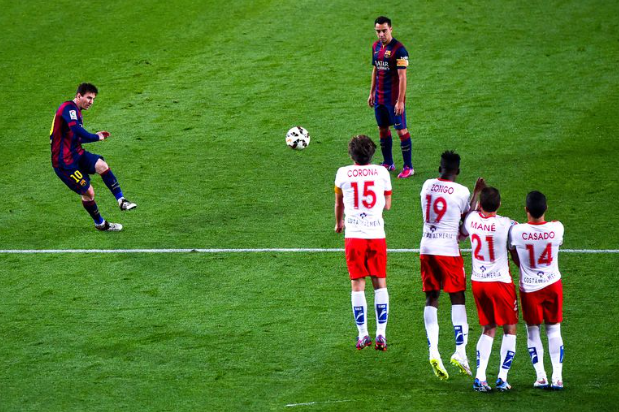
Substitutions in football may seem like a routine part of the game, but they often serve as pivotal moments that can completely alter the course of a match. Whether it’s a tactical change, an adjustment due to injury, or simply refreshing fatigued players, substitutions are a critical aspect of modern football strategy. The ability to make the right change at the right time can be the difference between winning and losing, and the world’s top managers are masters of this art. Fans eagerly follow these crucial decisions, tuning into live matches on Xoilac TV to witness how substitutions can turn a game on its head.
In this article, we will explore the importance of substitutions in football, how they have evolved over time, and why they are considered game-changing decisions. From tactical nuances to psychological boosts, substitutions are much more than just replacing tired legs—they are often decisive moves that shape the outcome of football’s most significant moments.
Contents
- 1 The Evolution of Substitutions
- 2 Tactical Substitutions: Shaping the Game Plan
- 3 Formation Adjustments
- 4 Targeting Weaknesses
- 5 Impact Substitutions: The Super Sub Phenomenon
- 6 Managing Fatigue and Injuries
- 7 Protecting Key Players
- 8 Responding to Injuries
- 9 Psychological Boost: Changing the Game’s Momentum
- 10 The Role of the Modern Substitution
- 11 Conclusion: The Art of the Substitution
The Evolution of Substitutions
In the early days of football, substitutions were not even part of the game. Players had to persevere through injuries and fatigue, often leaving teams at a disadvantage if someone got hurt. The introduction of substitutions revolutionized football, giving teams a chance to adapt during the game.
Initially, the substitution rule allowed only one player to be replaced, usually for injury reasons. Over time, this evolved into more flexible strategies, with the number of substitutions gradually increasing. In 2020, due to the pandemic and its impact on player fitness, FIFA temporarily allowed five substitutions per game, and many leagues have since adopted this rule permanently.
This shift in the substitution rule has transformed how managers approach the game. No longer are substitutions just a reactive measure—they have become a proactive tool that allows managers to influence matches in ways they couldn’t before. The ability to bring in fresh players, change tactics, and manage the team’s stamina across 90 minutes and beyond has never been more critical.
Tactical Substitutions: Shaping the Game Plan
One of the primary reasons for making substitutions is to adjust tactics during the game. Football is a dynamic sport, and what works in the first half may not be effective in the second. Managers must constantly assess the opposition, the condition of their own players, and the flow of the game to decide when and how to make changes.
Formation Adjustments
One of the most common tactical changes involves adjusting the formation. A manager may start the game with a 4-3-3 setup but notice that the opposition is overrunning their midfield. In this case, bringing on an additional midfielder and switching to a 4-4-2 can provide more balance. This subtle shift can turn the tide of a match, helping a team regain control of possession or close off gaps that were previously being exploited.
For example, José Mourinho is known for his tactical acumen and ability to use substitutions to shift formations and lock down defensively when his team has a lead. Such changes can be frustrating for the opposition, who may struggle to adjust their game plan to the new tactics.
Targeting Weaknesses
Another important tactical reason for substitutions is to exploit the opponent’s weaknesses. If a defender on the opposing team is tiring or struggling to cope with the pace of the game, bringing on a fast winger can turn a regular attack into a lethal one. This type of substitution is particularly common in the final stages of a match when fresh legs can wreak havoc on a tired defense.
In recent years, managers like Jürgen Klopp and Pep Guardiola have utilized fast, explosive substitutes to great effect. By bringing on players like Diogo Jota or Riyad Mahrez late in games, they introduce new energy into the attack and force the opposition to deal with a different kind of threat.
Impact Substitutions: The Super Sub Phenomenon
There are times when a substitution doesn’t just change tactics—it changes the entire momentum of a match. Impact substitutions, or “super subs,” are players brought on to make an immediate difference, often resulting in goals or game-changing moments.
Perhaps one of the most iconic examples of an impact substitution came during the 1999 UEFA Champions League final when Manchester United’s Ole Gunnar Solskjær came off the bench to score the winning goal in stoppage time. This is just one of many instances where substitutions have gone down in football history as pivotal decisions that altered the outcome of a match.
Impact substitutes can provide more than just fresh legs; they bring a sense of unpredictability to the game. Defenders who have been dealing with one type of forward for 60 or 70 minutes suddenly have to adjust to someone with a different playing style. This element of surprise is often what gives the super sub the advantage, especially in high-pressure situations where concentration and stamina are starting to wane.
Managing Fatigue and Injuries
Substitutions are not always about tactics or impact. Sometimes, they are a necessity due to fatigue or injuries. Football is a physically demanding sport, and over the course of a match, players can suffer from muscle strains, knocks, or simply run out of energy. In these situations, making the right substitution can prevent further injury or ensure that the team doesn’t suffer from a significant drop in performance.
Protecting Key Players
In modern football, where competitions like the Champions League, domestic leagues, and cup matches pile up, managing player fitness is critical. Top managers use substitutions to protect their star players from overexertion, ensuring they remain fresh for more crucial fixtures. This type of substitution might not be a dramatic game-changer on the day, but it can be vital for long-term success.
For example, Lionel Messi or Cristiano Ronaldo are often substituted in games where their team already has a comfortable lead. This ensures they are well-rested for upcoming key matches. Managers must balance the need to win the current game with the broader context of the season, and substitutions play a big role in this balancing act.
Responding to Injuries
Injuries can strike at any time, and making the correct substitution in response is crucial. A well-prepared manager will have multiple plans in place for different scenarios, such as an early injury to a defender or a late-game injury to a goalkeeper. Substitutions in response to injuries require quick thinking and adaptability, as they often force managers to adjust their tactics on the fly.

Psychological Boost: Changing the Game’s Momentum
Substitutions can also provide a psychological lift to a team. Bringing on a new player can energize not only the individual but the entire squad. The fresh player may raise the intensity of the game by pressing more aggressively or showing more determination, which can inspire their teammates to push harder.
On the flip side, substitutions can have a negative psychological impact on the opposition. Seeing a fresh, dangerous player come on when your team is already struggling can be demoralizing. Managers are acutely aware of this and may make substitutions as a psychological weapon, introducing players who they know will cause fear or hesitation in the opposing defense.
The Role of the Modern Substitution
In the modern game, substitutions are no longer just about who comes off and who goes on; they are about strategic thinking, foresight, and real-time adaptation. Managers use substitutions as a tactical tool, a method of managing player fitness, and a way to boost morale.
The introduction of the five-substitution rule has expanded the role of substitutions even further, allowing managers more flexibility in managing their squads over the course of the game. This change has added a new dimension to the game, as managers can now bring on multiple fresh players to alter the flow of the match in their favor.
Conclusion: The Art of the Substitution
The importance of substitutions in football cannot be overstated. They are a crucial aspect of game management, capable of transforming the tactical landscape, mitigating fatigue and injuries, and providing a psychological boost. Successful managers know how to use substitutions to their advantage, making game-changing decisions that can lead to victory.
For fans watching on xôi lạc bóng đá, substitutions often serve as turning points that elevate the drama and excitement of a match. Whether it’s a tactical tweak or a bold move to bring on a super sub, these decisions can define the outcome of the game and solidify a manager’s legacy in football history.